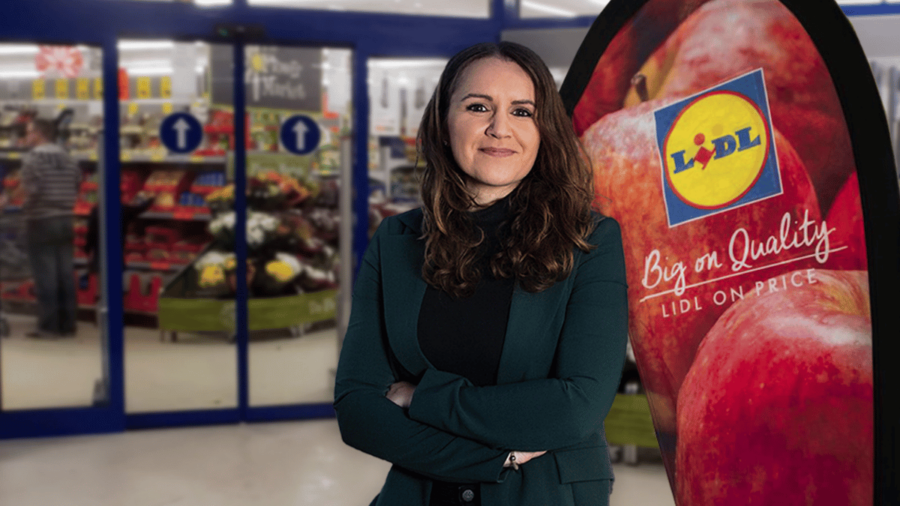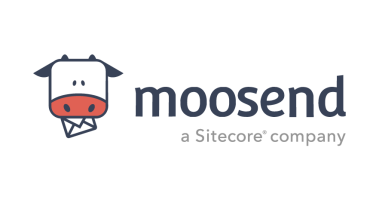
Ant Jackson is a creative director and brand and comms consultant who has worked at some of the UK’s biggest advertising agencies for clients such as Amazon, Ikea, Dove and Honda.
In 2017, she penned the tagline ‘Big on quality, Lidl on price’ for the discount supermarket while working for TBWA London, a subsidiary of Omnicom. Lidl quickly adopted the memorable line as its main UK slogan. It has paid off in spades, with the supermarket increasing its market share by two-thirds over that time. TBWA’s work for Lidl won an IPA Gold award for effectiveness.
Here, she talks about the power of puns and saying more with less.
What was your process for coming up with Lidl’s ‘Big on quality, Lidl on price’ tagline? How long did it take?
I wouldn’t have been able to write such a concise line had I not had a clear creative brief to work from. It’s a team effort, for sure. My usual approach is to first understand the ask, the audience and the why. I also consider any relevant insights that might act as useful drivers. I then write down as many ways in as possible until there’s no stone left unturned. From here, I review, condense, fine-tune and shortlist the top contenders. I usually look for lines that are clear in messaging, simple and nice to read, say or hear, memorable, distinctive, relevant to the audience and tonally on-brand. I shared my top contenders with Lidl’s creative director at the time, Paul Weinberger, who then presented his shortlist to the client — who also clearly had good judgement!
How difficult is it to condense what a brand stands for into just six words?
It’s not the easiest of challenges, sometimes! When I started training, I often struggled to speak in full sentences immediately after spending hours writing to a short word count. I remember my Dad calling me when I was doing my creative advertising MA in Falmouth and I said something like: “Hi. Can’t speak. Sentences. Writing. Taglines. Call back later.” He must’ve thought: “Ehh?! What’s ad school done to her?” It just isn’t a natural way to think, write or speak, is it? Sometimes the brain needs a bit of transition time to switch between thinking in this way and speaking like a normal human again. This is one reason why I’m a big advocate for ensuring that creatives don’t have too many meetings peppered throughout the day. Protected time is needed to get in the zone. Like many creatives, I’ve ADHD too, so having the right environment to focus is critical.
You were a junior copywriter when you came up with the line. Did you expect it to be adopted so prominently by the supermarket? Was it hard to get your voice heard within your team or with the client?
Not only was I a junior, I was also the only woman in the creative department at the time. I definitely wasn’t the loudest. I was lucky, though, to be in a respectful department with no intimidating personalities. Our executive creative director, Graeme Douglas, was fun, lively, and championed the bold sharing of ideas. Working with him helped my creative partner at the time and I to feel safe to share even our most ridiculous thoughts. Work often felt like play. For a brand with a light tone of voice like Lidl, play was a good creative enabler.I’d been writing for Lidl for a good year or so before the Lidl endline brief landed on my desk and so was familiar with its tone of voice. The tagline actually started as a campaign line copy brief for a price promotion campaign. A few people spotted its potential and, after performing well, it ended up replacing #LidlSurprises. Had more people known at the time that it would go on to become Lidl’s long-standing tagline, I’m sure some more senior creatives would have been fighting to get their hands on that brief too! There’s an important lesson to be learnt there. Any brief, no matter how small it may seem at the time, has the potential to become something bigger. I encourage the creatives I work with to approach every brief with this mindset. We are here to create, after all.
Why do you think the line has worked so well for Lidl?
It’s simple and easy to understand, with two clearly communicated consumer benefits. The use of informal language helps the brand retain an authentic tone, and the use of opposites creates a very subtle tension, which makes the line more memorable. Of course, having a Lidl pun in there helps too, as it puts the brand name front and centre. For a German brand, an English pun also helps Lidl to appear more relevant to its UK audience.
Executions and tactics will come and go, but a brand’s tagline is the one consistent message that people remember
How much do you think taglines matter to the success of a brand?
Some may argue that traditional forms of copy, like taglines, matter less these days. However, for a category like supermarkets where the battle for market share is ongoing and price-dependent, a tagline is an important brand differentiator. Marketing will continue to evolve, as will audiences’ wants and needs, but if a brand isn’t clear and consistent about its identity and what it stands for, building trust, salience and loyalty won’t be as simple. Executions and tactics will come and go, but a brand’s tagline is the one consistent message on every piece of communication that people remember over time. Of course, the customer experience also has to live up to this brand promise. I’m sure Lidl wouldn’t have been named ‘fastest growing supermarket’ by Kantar in 2018 had it not.
Puns can be a love/hate thing, so how do you know when it’s appropriate for a brand to use them?
The choice of words has to fit the brand’s tone of voice. In Lidl’s case, puns do – in moderation. Brains (according to science) love puns. When you ‘get’ the pun, this gives your brain’s reward centre the equivalent of a pat on the back. You feel a bit clever when you work it out. While you might not associate puns with intelligence, some research even suggests that being able to make and understand puns is a sign that you have a sharp mind. So really, if you understand the pun in Lidl’s tagline, you’re getting a free compliment from me! You are very welcome. What’s more, linguistic experts say that puns let us pack more meaning into fewer words, so we can get our point across faster. So, some may say that when used in taglines, they’re big on quality…
Apart from Lidl, what’s been your favourite copywriting project to work on?
Ooh, that’s a tough one. I feel fortunate to have worked on so many interesting and worthy projects. I recently led the creative development for sustainable spirits brand Discarded’s first out-of-home campaign, which was cheeky and provocative. Another highlight was working with charity HandsOn London in the pandemic. I kicked off an emergency Christmas fundraising campaign to help homeless people wrap up warm over the winter months. I also wrote the tone of voice for open-minded adult dating app WeAreX, which was possibly the most eye-opening and empowering project to date. Most recently, I’ve been working with campaigning teams to tackle critical issues such as climate change and air pollution. For me, the joy comes from creating truly impactful or entertaining work that makes people feel seen and understood. If I can add value to a project that makes a difference or boosts someone’s mood, it’s been a good day.
What tagline – or other piece of copy – do you wish you’d written?
Airbnb’s ‘Belong anywhere’. It’s an incredibly powerful tagline with a lifetime of longevity. The line achieves mass relevance as a brand and product truth, while having the potential to mean something much more powerful to diverse individuals all over the world. As part of the brand’s mission statement, this north star helps guide more human-centric brand actions, such as promoting a sharing economy, and supporting refugees.
Next, read the previous articles in our series about the unsung heroes behind famous creative ideas: The illustrator of Toblerone’s ‘bear in the mountain’ logo and the marketing whizz behind Innocent’s 20-year Big Knit campaign

Ant Jackson is a creative director and brand and comms consultant who has worked at some of the UK's biggest advertising agencies for clients such as Amazon, Ikea, Dove and Honda.
In 2017, she penned the tagline 'Big on quality, Lidl on price' for the discount supermarket while working for TBWA London, a subsidiary of Omnicom. Lidl quickly adopted the memorable line as its main UK slogan. It has paid off in spades, with the supermarket increasing its market share by two-thirds over that time. TBWA's work for Lidl won an IPA Gold award for effectiveness.
Here, she talks about the power of puns and saying more with less.





